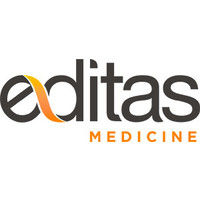Editas Medicine

- Country
- 🇺🇸United States
- Ownership
- Public
- Established
- 2013-01-01
- Employees
- 265
- Market Cap
- $315M
- Introduction
Editas Medicine, Inc. engages in the development and commercialization of genome editing technology. Its technology includes clustered, regularly interspaced short palindromic repeats (CRISPR), and CRISPR associated protein 9 (Cas9). The company was founded by Feng Zhang, Jennifer A. Doudna, George McDonald Church, J. Keith Joung and David R. Liu in September 2013 and is headquartered in Cambridge, MA.
Federal Circuit Remands CRISPR Patent Dispute to PTAB in Ongoing Editas Medicine Case
The U.S. Court of Appeals for the Federal Circuit has partially vacated the Patent Trial and Appeal Board's previous decision in the CRISPR/Cas9 patent interference case, remanding it for further review.
CRISPR-Cas9 Market Set to Surge: Over 25 Therapies in Clinical Trials Expected to Launch Within 5-7 Years
The global CRISPR-Cas9 therapy market is rapidly expanding with over 25 therapies currently in clinical trials, many of which are expected to receive regulatory approval and enter the market within the next 5-7 years.
Bayer and CRISPR Therapeutics Form $300 Million Joint Venture to Advance Gene-Editing Therapies
Bayer is investing $300 million over five years in a new joint venture with CRISPR Therapeutics, plus $35 million for a minority stake in the gene-editing pioneer.
Editas Medicine Achieves In Vivo Gene Editing Milestones, Plans Clinical Push
Editas Medicine achieved in vivo preclinical proof of concept by editing hematopoietic stem cells in non-human primates, a crucial step for sickle cell disease and beta thalassemia treatment.
CRISPR Weekly Roundup: Advancements in Gene Editing and Clinical Trials
Beam Therapeutics reported a patient death in their BEAM-101 sickle cell disease trial, likely due to the conditioning regimen.
Editas Medicine's Reni-Cel Shows Promise in Sickle Cell Disease Treatment
Editas Medicine's reni-cel (EDIT-301) demonstrates a 100% vaso-occlusive crises-free rate in SCD patients during follow-up, with sustained hemoglobin levels.
CRISPR Technology Shows Promise Across Diverse Clinical Applications
CRISPR-Cas9 gene editing has achieved a significant milestone with FDA approval of Casgevy for sickle cell disease and transfusion-dependent beta thalassemia.
CRISPR Gene Editing Shows Promise in Treating Rare Form of Blindness
A CRISPR-based gene editing therapy, EDIT-101, has shown promising results in treating Leber Congenital Amaurosis (LCA) Type 10, a rare genetic form of blindness.
Editas Medicine Advances EDIT-301 for Sickle Cell Disease and Beta Thalassemia, Prioritizes In Vivo Gene Editing
Editas Medicine reported positive initial data from the RUBY trial of EDIT-301 in severe sickle cell disease, showing clinically significant improvement in hematological parameters.
First In Vivo CRISPR Therapy Dosed in Clinical Trial for Congenital Blindness
Editas Medicine and Allergan administered the first in vivo CRISPR-based therapy to an adult with congenital blindness, marking a significant milestone in gene editing.
